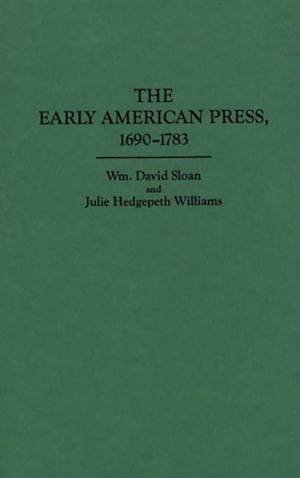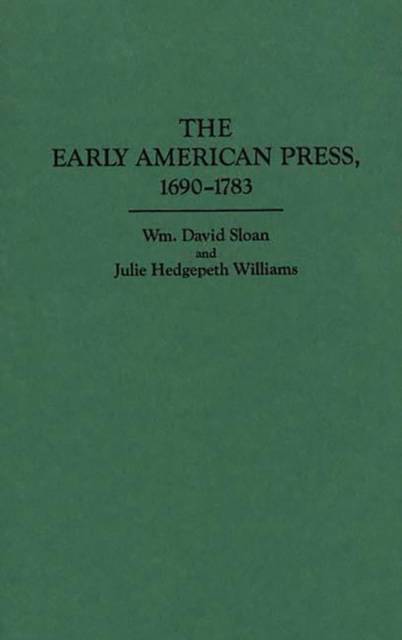
- Retrait gratuit dans votre magasin Club
- 7.000.000 titres dans notre catalogue
- Payer en toute sécurité
- Toujours un magasin près de chez vous
- Retrait gratuit dans votre magasin Club
- 7.000.000 titres dans notre catalogue
- Payer en toute sécurité
- Toujours un magasin près de chez vous
Description
The first book in a six-volume series on the history of American journalism, this volume provides a survey of the earliest printing in the American colonies, up through the Revolutionary War. The work focuses on the nature of journalism during the years covered, considers noteworthy figures, examines the relationship of journalism to society, and provides explanations for the main directions that journalism was taking.
Early American printing was animated by remarkable vitality and sophistication, with the life of each newspaper and printer being marked by individual ideas and individual struggles. Early Americans also had quite sophisticated ideas about the role and operation of the press. In this survey, the authors try to suggest the complexities of the early American press. They address such issues as why newspapers first appeared, the purpose that newspaper operators saw for themselves, the role of the practice of journalism in the colonial press, and the role of the press in influencing public opinion. Their primary focus, however, is on the essential nature of the early American press and the factors that accounted for that character.Spécifications
Parties prenantes
- Auteur(s) :
- Editeur:
Contenu
- Nombre de pages :
- 248
- Langue:
- Anglais
Caractéristiques
- EAN:
- 9780313275258
- Date de parution :
- 30-09-94
- Format:
- Livre relié
- Format numérique:
- Genaaid
- Dimensions :
- 161 mm x 242 mm
- Poids :
- 562 g







